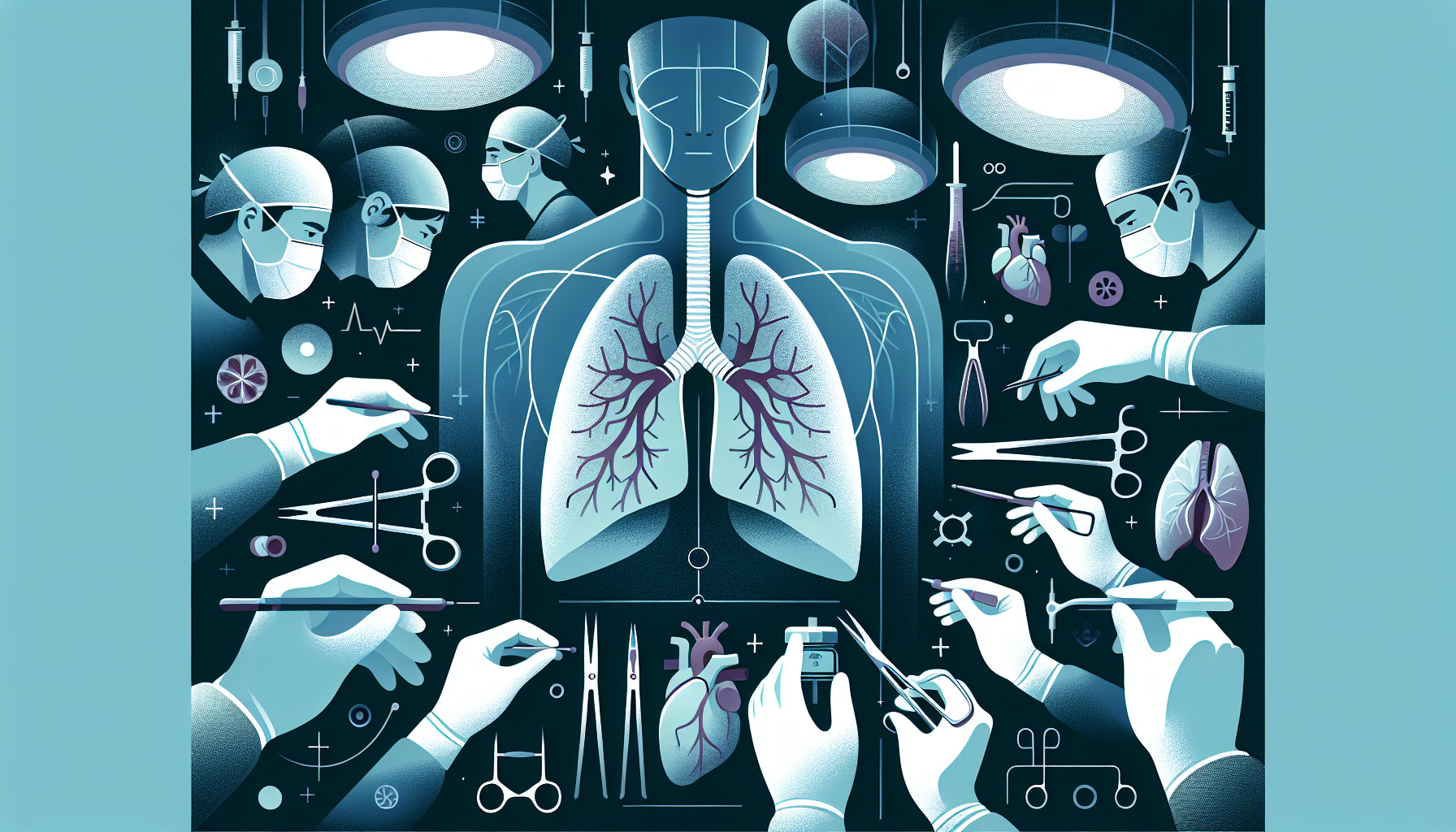Our Summary
Lung transplantation is a common treatment for patients with serious lung diseases. However, patients who receive lung transplants have the highest rates of rejection compared to other organ transplants. This rejection is due to the body’s immune system continually recognizing the new lung as foreign and causing damage to its airways and blood vessels. This can be triggered by various factors after the transplant, and it often results in the new lung deteriorating, either in its function or structure. This article reviews our current understanding of this issue, the challenges we face, and the gaps in our knowledge about acute cellular rejection and chronic lung transplant dysfunction - the biggest obstacle to long-term survival after a lung transplant.
FAQs
- What is the main issue with lung transplantation according to the article?
- What is the main cause of the pathophysiological decline in lung transplant recipients?
- What are the biggest barriers and gaps in knowledge when it comes to acute cellular rejection and chronic lung allograft dysfunction?
Doctor’s Tip
One helpful tip a doctor might tell a patient about lung transplant is to strictly adhere to their medication regimen as prescribed. This includes taking immunosuppressant medications to prevent rejection of the transplanted lung. It is important for patients to take their medications consistently and on time to ensure the success of the transplant. Missing doses or not following the prescribed regimen can increase the risk of rejection and other complications. Additionally, patients should follow up with their healthcare team regularly for monitoring and adjustments to their medication regimen as needed.
Suitable For
Patients who are typically recommended for lung transplant are those with end-stage respiratory diseases that have failed to respond to other treatments such as medication, oxygen therapy, and pulmonary rehabilitation. These diseases may include:
- Chronic obstructive pulmonary disease (COPD)
- Idiopathic pulmonary fibrosis
- Cystic fibrosis
- Pulmonary hypertension
- Alpha-1 antitrypsin deficiency
- Bronchiectasis
- Sarcoidosis
- Lymphangioleiomyomatosis
Patients who are considered for lung transplant must undergo a thorough evaluation process to determine their eligibility and suitability for the procedure. This evaluation includes assessments of their medical history, current health status, lung function, and overall physical and psychological well-being.
It is important to note that lung transplantation is a complex and high-risk procedure, and not all patients with end-stage respiratory diseases will be recommended for a transplant. The decision to undergo a lung transplant is made on a case-by-case basis, taking into consideration the potential benefits and risks for each individual patient.
Timeline
Before lung transplant:
- Patient is diagnosed with end-stage respiratory disease and is evaluated by a transplant team.
- Patient undergoes extensive medical and psychological evaluations to determine eligibility for transplant.
- Patient is placed on the transplant waiting list and waits for a suitable donor organ to become available.
- Patient continues to receive medical treatment and support to manage their condition while waiting for transplant.
After lung transplant:
- Patient undergoes the lung transplant surgery and is closely monitored in the intensive care unit post-operatively.
- Patient begins a regimen of immunosuppressive medications to prevent rejection of the new organ.
- Patient undergoes frequent follow-up appointments and monitoring to assess the function of the transplanted lung.
- Patient may experience episodes of acute rejection, which may require adjustments to their medication regimen.
- Patient may develop chronic lung allograft dysfunction, such as bronchiolitis obliterans syndrome or restrictive allograft syndrome, which can impact long-term survival.
- Patient continues to receive ongoing medical care and support to manage complications and optimize long-term outcomes post-transplant.
What to Ask Your Doctor
- What are the risks and benefits of a lung transplant for my specific condition?
- What criteria do I need to meet in order to be considered for a lung transplant?
- How long is the waiting list for a lung transplant, and what factors may affect my wait time?
- What is the success rate of lung transplants at this hospital or transplant center?
- What are the potential complications or side effects of a lung transplant surgery?
- How will I need to care for my new lung post-transplant, and what lifestyle changes will I need to make?
- What is the likelihood of rejection of the new lung, and how is rejection typically treated?
- How often will I need to follow up with my transplant team after the surgery?
- Are there any specific medications I will need to take for the rest of my life post-transplant?
- What support services are available for lung transplant recipients, such as counseling or support groups?
Reference
Authors: Beeckmans H, Bos S, Vos R, Glanville AR. Journal: Clin Chest Med. 2023 Mar;44(1):137-157. doi: 10.1016/j.ccm.2022.10.011. PMID: 36774160
